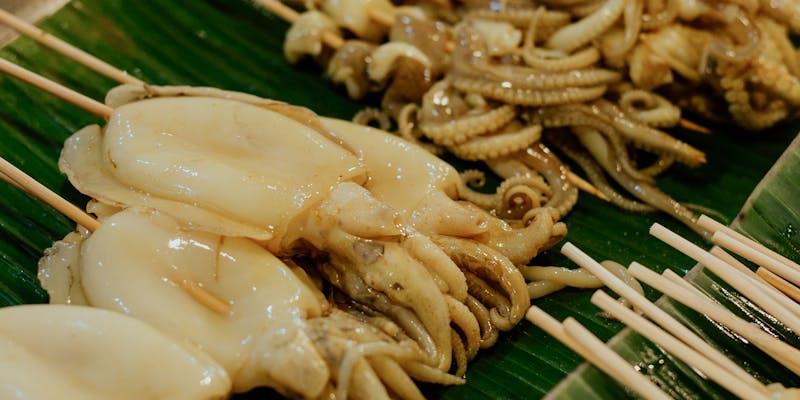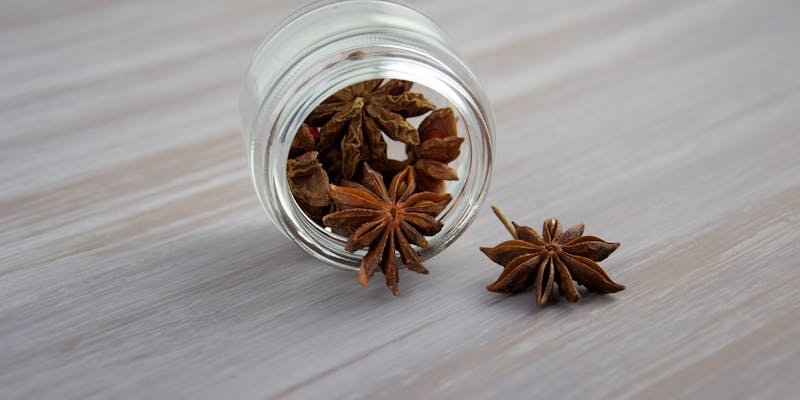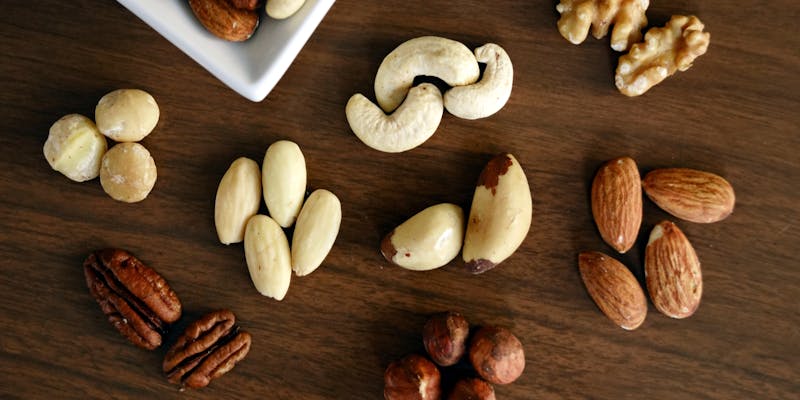People throughout the globe love Squids, a kind of shellfish that is quite prestigious. Not only is it cheap, but it is also very adaptable and delicious. Sashimi, instead of grilled, seared, boiled, or braised, is another delightful preparation method. Chopped calamari is often prepared by frying and breading. The name "calamari" is widely used to refer to this kind of blue squid, but it properly covers any squid used in cooking.
Eating frozen has the highest calorie density of all the ways to prepare the insect. For economic reasons, blue squid are usually caught off the shore and sometimes even further inland. Many different kinds of calamari are caught and then burnt. Four species of calamari were most popular in 2002: flying, enormous, European, and Argentine. Today, the world's huge flying squid fishery is more productive than it has ever been before.
Nutrition Facts

The following ingredients are included in one serving of baby calamari: One hundred milligrams.
- Iron: 1.5 mg
- Vitamin C: 10 mg
- Calories: 70
- Protein: 15 g
- Potassium: 280 mg
- Calcium: 10 mg
- Fat: 1g
- Zero grams carbs
- Zero grams fiber
- Sodium: 230 mg
Benefits Of Eating Squid
Calorie-Smart Choice
Shellfish and blue squids are similar to numerous other species of mollusks. The available colors include black, white, hard shell, and red. Due to its low caloric intake, high protein content, and vital minerals, squid, also called calamari, is an excellent addition to a nutritious diet. According to experts in healthful nutrition, squid is a fantastic method to increase protein intake without accumulating weight.
For individuals on a diet restricting calories but desiring to increase protein consumption, 100 grams of squid contains 75 to 85 calories, rendering it an excellent option. However, like calamari rings, batter-frying squid could substantially increase its caloric content. Therefore, to preserve its nutritional value, utilize healthful methods when preparing squid.
Source Of Protein
Regarding protein nutrition, blue squid appears to be a true superfood. Nutritionists generally assume that the protein content per 100 grams varies from 15.5 to 16.1 grams. People aiming to boost their protein intake can also consider squid an alternative source. You may be looking to develop muscle mass, lose weight, or keep your weight regular, and squid can help you achieve your goal by including squid in your diet.
The body uses protein for various functions, including making muscle proteins, collagen, some hormones, and enzymes. Squid and other high-protein food groups make weight management easier because they last longer and satisfy the appetite. Searing, roasting, and pan frying are fantastic ways to cook this seafood in squid soup.
Zero-Carb
Presently, individuals on a carbohydrate restriction consider squid to be the optimal dietary option. Without carbohydrates, it is an ideal supper for low-carb regimens such as the ketogenic diet. Anyone attempting to reduce their carbohydrate consumption without sacrificing other essential nutrients should consider consuming squid.
Due to its low carbohydrate content, squid head is an excellent complement to meat-and-fat-reduction diets. Along with squid soup, this is frequently the diet plan of individuals attempting to maintain a healthy weight, exercise regularly, or consume more nutritious food. Consuming squid won't increase blood sugar, which is beneficial for your vitality and overall health because it contains no carbohydrates.
Great for Nerves and Blood
Vitamin B12 supplements both folic acid and nerve function. Vitamin B6 is essential for cardiovascular health in the same way that it aids in preventing accidents. Oysters are both important nutrients, which makes squid an excellent dietary option.
Consuming squid has other benefits. It also provides essential trace minerals, selenium, and vitamin E. Both selenium and vitamin E boost strength and fertility. Selenium's antioxidant actions may reduce tumor growth and combat cancer. Due to their high lipid content, be cautious while handling mollusks, particularly squid heads. Squid is a poor cholesterol source due to its low-fat content and lack of absorption. Some evidence suggests shellfish may decrease blood cholesterol. Despite common assumptions, squid may improve nutrition.
Selenium and Vitamin E
The squid soup is an exceptional source of several vital nutrients, in addition to being incredibly delicious. Here, the most critical nutrients for optimal healthselenium and vitamin Ecan be obtained. Selenium is essential for good fertility and development, even though it is hardly a requirement. Selenium and vitamin E have antioxidant actions. This drug might also positively affect one's ability to combat this disease by inhibiting cancer cells.
Furthermore, you may mistrust squid head meat because it is high in cholesterol. However, the ironies of the situation become vivid as well. Squid has low fat content because the body absorbs cholesterol poorly due to poor digestion.
Squid Health Risks

Consuming squid in moderation is healthful. Allergic reactions and high mercury levels make squid and shellfish the most dangerous.
Squid Allergies
Like other seafood, cuttlefish may induce allergies. Cephalopod proteins like tropomyosin often trigger these reactions. Squid is unsafe for crustacean allergy sufferers. People with shellfish allergies should consume shellfish with caution. Some individuals are sensitive to squid, a common component in many recipes since it includes tropomyosin, a protein in many mollusks. Some individuals have severe protein allergy symptoms, while others have milder ones. When allergic to crustaceans, avoid squid heads.
Mercury Concerns
Mercury issues in seafood have been worrying us for a long time now. A toxic substance such as this is prone to accumulation in the body, especially in children. Because it has only a minimal mercury content, the FDA considers squid a "Best Choices" fish category. However, you shouldn't overeat calamari.
Adults should consume no more than two or three servings of seafood, such as squid, in a one-ounce portion daily. With kids younger than 12, portions of fish should not exceed twice a week, and kids should use one to four ounces. The report concluded that mercury level uptake would be reduced without putting the effects of seafood, including calamari, at stake.
Squid Ink
Notwithstanding the absence of toxic compounds, squid ink may present certain risks. Analogous to shellfish and squid, many individuals may experience allergic reactions. Individuals with a crustacean or calamari allergy should refrain from receiving or using squid ink products.
Squid ink provides color and taste, but crustacean allergies should be avoided. Most individuals don't get ill from squid ink; others have allergies. Those with squid heads or crustacean sensitivities should avoid consuming squid ink.




